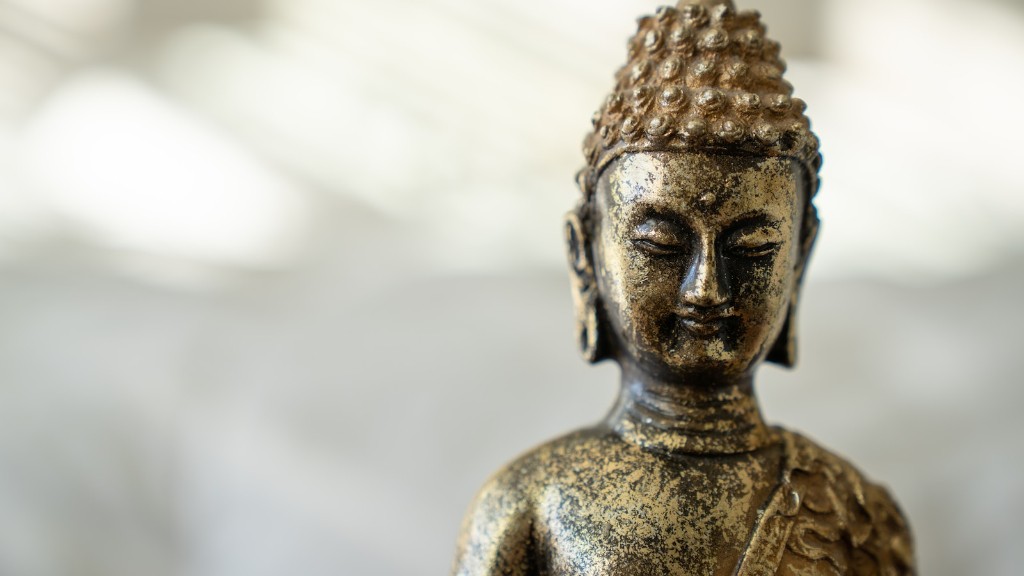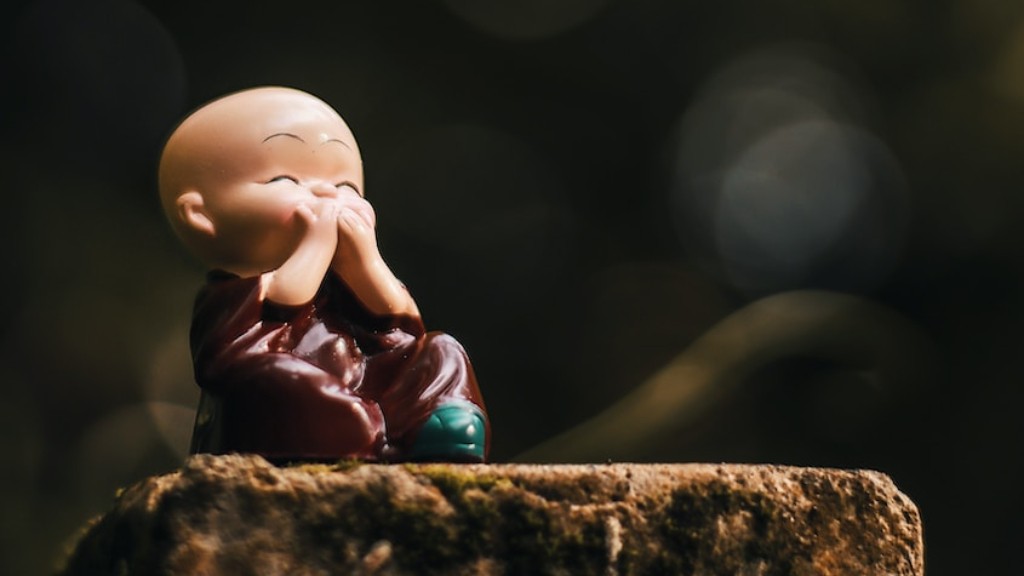Buddhism and Hinduism are two of the world’s largest and oldest religions. Though they share many similarities, they also have some important differences. For instance, Buddhism arose as a reaction to the rigid caste system of Hinduism, while Hinduism encompasses a wide range of beliefs and practices. Additionally, Buddhist scriptures are largely focused on the life and teachings of the Buddha, while Hindu texts include a vast array of stories, wisdom, and rituals. Ultimately, while both Buddhism and Hinduism offer paths to enlightenment, they are distinct religious traditions.
No, Buddhism is not the same as Hinduism. Buddhism is a religion that was founded by Siddhartha Gautama in India in the 6th century BCE. Hinduism, on the other hand, is a religion that has its roots in the Vedic traditions of the Indian subcontinent and has no single founder.
Is Buddhism considered a part of Hinduism?
Buddhism is a religion that originated in ancient India. Siddhartha Gautama, the founder of Buddhism, was born into a Hindu family. As a result, Buddhism is considered to be partially derived from the Hindu religious tradition. Some Hindus even revere Buddha as an incarnation of a Hindu deity.
Hinduism and Buddhism are both religions that originated in India. They share many common beliefs, such as the law of karma, dharma, and moksha, and the belief in a cycle of rebirth. Both religions also believe in the existence of several hells and heavens, or higher and lower worlds. However, the founders of Hinduism and Buddhism are both unlike most major religions.
Do Buddhist believe in Hindu gods
Buddhism does not accept the Hindu theory of a creator deity (Ishwara). While Buddhism inherited some practices and ideas from the previous Indian yogic traditions, its understanding is different than that of Hindu teachings (such as those found in the Bhagavad Gita).
Siddhartha Gautama was a man who was searching for the meaning of life. He tried many different things, but nothing seemed to satisfy him. One day, he sat down under a tree and meditated. He finally reached a state of enlightenment and became known as the Buddha.
Buddhists do not believe in any kind of deity or god. However, they do believe in supernatural figures who can help or hinder people on the path towards enlightenment. The Buddha was the first person to reach this state of enlightenment, and he is still revered by Buddhists today.
Can a Hindu follow Buddhism?
Hinduism is based on the Vedas, while Buddhism is not.
Hinduism is Brahmanical, while Buddhism is not.
Buddhism teaches that one can attain Nirvana (peace) through their own efforts, while Hinduism teaches that one needs the grace of a god or guru to attain liberation.
Buddhism teaches that all beings are equal and have the potential to become Buddhas, while Hinduism teaches that there is a hierarchy of caste and that some beings are more equal than others.
Vajrapāṇi, Mañjuśrī and Avalokiteśvara are the three main Buddhist deities. They represent the three main aspects of the Buddhist teachings: wisdom, compassion and power. Vajrapāṇi is the Buddha of wisdom, Mañjuśrī is the Buddha of compassion, and Avalokiteśvara is the Buddha of power.
What are the 3 main beliefs of Buddhism?
Buddhism is a religion that originated in India, based on the teachings of Siddhartha Gautama. Siddhartha Gautama was born into a wealthy family and had every opportunity to live a life of luxury and comfort. However, he was not content with this life and decided to leave his family in search of truth and enlightenment. After spending many years as a ascetic, he is said to have attained enlightenment while meditating under a tree. He then began teaching his findings to others, and his followers came to be known as Buddhists.
The main principles of Buddhism are karma, rebirth, and impermanence. Karma is the principle of cause and effect, whereby good deeds lead to positive outcomes and bad deeds lead to negative outcomes. rebirth is the belief that after we die, our souls are reborn into another body, and this cycle continues until we reach enlightenment. impermanence is the belief that nothing in this world is permanent and that everything is in a state of flux.
Buddhism is a religion that evolved from Hinduism and the ancient Indian social structure. In this case, there is a male founder of the religion. His name was Siddhartha Gautama and he was born in South Asia (what is now Nepal) in 563 BCE.
Why do Buddhist not believe in god
Buddhism is a nontheistic religion that is focused on spiritual liberation. The Buddha himself rejected the idea of a creator god, and Buddhist philosophers have even argued that belief in an eternal god is nothing but a distraction for humans seeking enlightenment.
The Buddha is known for his teachings of compassion and peace. However, some people believe that he also had a hidden agenda. It is said that the Buddha wanted to restore the natural order by deluding the asuras, or demons. By causing them to convert to Buddhism, he deprived them of their dharma, or moral law. As a result, the asuras were said to be without direction or purpose.
What do Buddhist think about Jesus?
It is interesting that some high-level Buddhists have drawn analogies between Jesus and Buddhism. In 2001, the Dalai Lama stated that “Jesus Christ also lived previous lives”, and added that “So, you see, he reached a high state, either as a Bodhisattva, or an enlightened person, through Buddhist practice or something like that” Thich. This shows that there are some similarities between the two religions, and that they can learn from each other.
In Buddhism, there is no concept of punishment or reward. There is no divine being who decides who goes to hell or heaven. There is merely the illusory results of our thought, words and deeds, which we call karma.
Do Buddhists believe in afterlife
Buddhist teaching views life and death as a continuum, believing that consciousness (the spirit) continues after death and may be reborn. Death can be an opportunity for liberation from the cycle of life, death and rebirth.
It is interesting to note that both Hinduism and Buddhism share the same gods, albeit with different perspectives. In Hinduism, the gods are seen as divine and powerful beings, while in Buddhism, they are more subordinate. This is likely due to the fact that Buddhism does not believe in a god, while Hinduism does. This is an important distinction to keep in mind when comparing the two religions.
Did Buddhism break away from Hinduism?
Siddhartha Gautama was a Hindu prince who lived in India in the 6th century BCE. He left his palace and family to live as a ascetic, and eventually realized that the life of luxury was not what true happiness consists of. He began to teach others about his findings, and his message spread throughout India. This eventually led to the shift from Hinduism to Buddhism.
Sanātana Dharma is a Sanskrit term used to refer to the eternal Dharma, or natural law. This term is used in Hinduism to describe the essential core of its beliefs and practices. Hinduism is the oldest religion in the world, and Sanātana Dharma is often seen as its source.
Conclusion
No, Buddhism is not the same as Hinduism. Buddhism is a separate religion with different beliefs and practices.
There is no easy answer to this question as there are many similarities and differences between Buddhism and Hinduism. At their core, both religions teach compassion, non-violence, and respect for all living things. However, there are also significant differences between the two belief systems, such as the fact that Hindus believe in reincarnation and Buddhists do not. Ultimately, whether or not Buddhism and Hinduism are the same depends on the individual’s interpretation.



